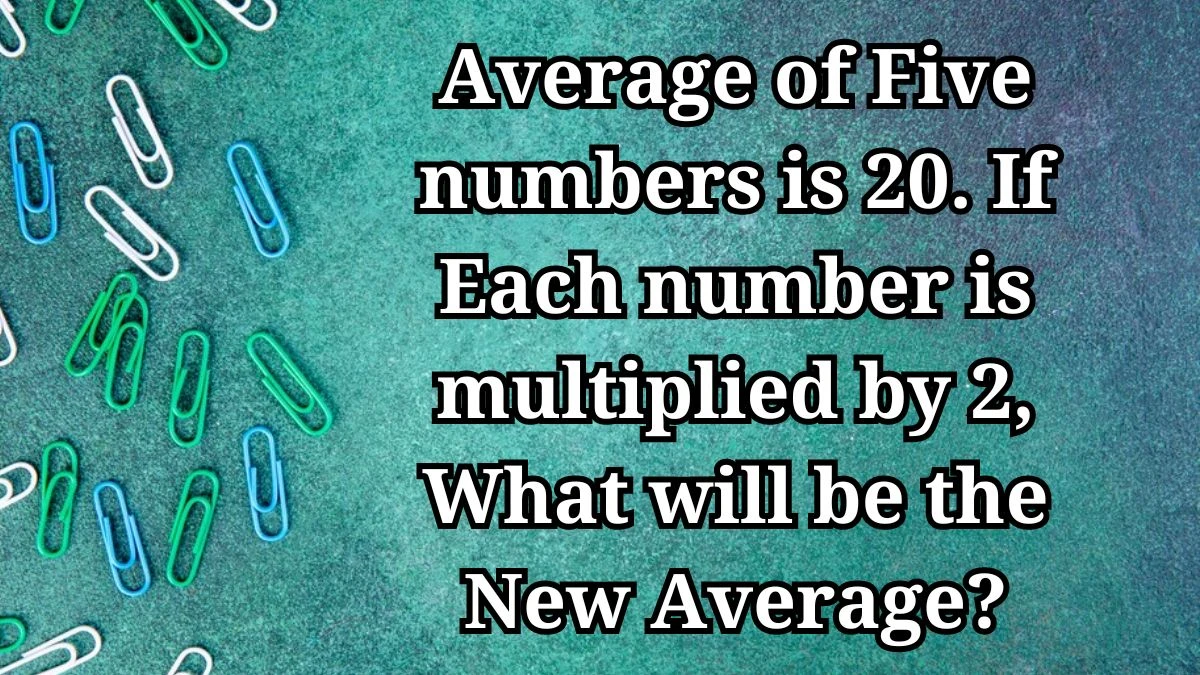Average of Five numbers is 20. If Each number is multiplied by 2, What will be the New Average?
by
Updated Jun 20, 2024

Average of Five numbers is 20. If Each number is multiplied by 2, What will be the New Average?
To solve the problem of finding the new average after multiplying each of five numbers by 2, follow these steps.
The average of five numbers is given as 20. This means that when you add up all five numbers and divide by 5, the result is 20.
Calculate the Sum of the Numbers
Let the five numbers be represented as x, y, z, a, b
According to the average formula (x+y+z+a+b)/5 = 20
x+y+z+a+b = 100
Now, multiply each of the five numbers x, y, z, a, b by 2 to find the new set of numbers:
2x, 2y, 2z, 2a, 2b
Find the sum of the new set of numbers
2x+2y+2z+2a+2b
To find the new average, divide the new sum by 5
(2x+2y+2z+2a+2b)/5
Notice that multiplying each original number by 2 also multiplies the sum of the original numbers by 2.
Therefore, the new sum of the numbers will be 2 x 100 = 200
Divide the new sum by 5 to find the new average
200/5 = 40
Therefore, after multiplying each of the five numbers by 2, the new average of the numbers will be 40.
Effect of Multiplication on Averages
Understanding how averages change when individual numbers are multiplied by a constant factor involves basic principles of arithmetic and proportionality.
Initial Average:
The average of a set of numbers represents the central value of the group. For example, if the average of five numbers is 20, it means that when you add up all five numbers and divide by 5, the result is 20.
Effect of Multiplication:
Multiplying each number in the set by the same factor (e.g., multiplying by 2) affects both the individual numbers and the overall sum of the numbers. This multiplication scales up each number proportionally.
Calculating the New Sum:
After multiplying each number by 2, the sum of the numbers also doubles. This is because each original number contributes twice as much to the total sum.
Determining the New Average:
To find the new average after multiplication, divide the new sum of the numbers (which is now doubled due to multiplication) by the number of numbers in the set. This calculation gives us the average of the new set of numbers.
Proportionality:
The relationship between the original average and the new average after multiplication is proportional. Multiplying each number in the original set by a factor k will result in the new average increasing by a factor of k.




